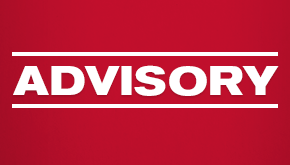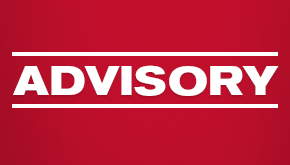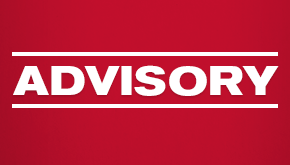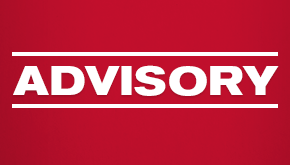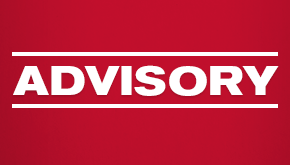Unpacking The POWR Act, Colo.'s New Work Harassment Law
The Protecting Opportunities and Workers' Rights Act, or POWR, will take effect in Colorado on Aug. 7.[1] It will apply to employment practices that occur on or after Aug. 7, subject to referendum petition.[2]
For Colorado employers, the key takeaway from the POWR Act is that the standard for proving harassment is no longer "severe or pervasive." As a result, employees can bring harassment claims more easily — and even from a single incident.
To help protect their business and potentially mitigate their risk of such claims, employers must implement a program to prevent harassment.
Harassment Prevention Program
Under the POWR Act, a harassment prevention, deterrence and protection program is an employer's only available affirmative defense against a harassment claim.
If an employee brings a claim for harassment, an employer's ability to fight back and defend itself has become more challenging. Based on this new law, an affirmative defense to a harassment claim is only available if the employer demonstrates it has a program in place that is "reasonably designed to prevent harassment, deter future harassers, and protect employees from harassment."
For the employer to assert a defense, it must show that:
- It takes prompt and reasonable actions to investigate, address and remedy allegations of discriminatory or unfair employment practices;
- It has communicated the existence and details of their harassment prevention program to employees; and
- The employee has unreasonably failed to take advantage of the employer's program.
The program outlined above is especially important because harassment claims are no longer subject to a "severe or pervasive" standard.
Other Changes in the New Law
New Harassment Definition
For purposes of discriminatory or unfair employment practices, Colorado employment law previously defined "to harass" as creating a hostile work environment based on an individual's race, national origin, sex, sexual orientation, gender identity, gender expression, disability, age or religion.[3]
The POWR Act expands that definition to "any unwelcome physical or verbal conduct" or communication directed at an individual or group because of their actual or perceived membership in a protected class — disability, race, creed, color, sex, sexual orientation, gender identity, gender expression, marital status, religion, age, national origin or ancestry.
The definition changed in a few important ways:
- Conduct or communication is no longer required to rise to the level of creating a hostile work environment;
- An individual does not have to be a member of a protected class; and
- Marital status has been added as a protected class.
New Subjectively and Objectively Offensive Standard
Harassing conduct or communication no longer needs to be severe or pervasive. Instead, the conduct or communication — even if only a single occurrence — must be subjectively and objectively offensive.
Violations
The conduct or communication constitutes a discriminatory or unfair employment practice if:
- Submission to the conduct or communication is a term or condition of employment;
- Submission, objection, or rejection of the conduct or communication is a basis for employment decisions; or
- The purpose or effect of the conduct is to unreasonably interfere with work performance or create an intimidating, hostile or offensive working environment.
Additionally, the new law looks at the totality of the circumstances. "Petty slights, minor annoyances, and lack of good manners" may constitute harassment depending on the totality of the circumstances.
Three Other Notable Changes Under the POWR Act
Disability Accommodations
First, the act creates a new standard for determining whether an accommodation the employer is offering is reasonable.
The POWR Act narrows the affirmative defense for employers who have not provided reasonable accommodation for a disability. A disability that "has a significant impact on the job" is no longer sufficient. Instead, the defense requires that no reasonable accommodation "would allow the individual to satisfy the essential functions of the job."
Nondisclosure Agreements
Second, nondisclosure agreement requirements have changed. An NDA provision or agreement that restricts communication about alleged discriminatory or unfair employment practices is void unless the NDA meets the following criteria.
- Nondisclosure equally applies to all parties.
- Disclosure of an allegation's underlying facts is not restricted as it relates to certain individuals, government agencies, the legal process and other purposes required by law.
- It expressly states the above disclosure does not constitute disparagement.
- It includes a condition that a nondisparagement provision is unenforceable against the employee if the employer disparages the employee to a third party.
- A liquidated damages provision is only enforceable if it is reasonable and proportionate, is not punitive, and varies based on breach.
- An addendum attesting compliance with this subsection of the POWR Act addressing nondisclosure provisions is attached and signed by all parties.
Record-Keeping Requirements
Third, record-keeping requirements have changed. Employers must preserve an accurate, designated repository of complaints of discriminatory or unfair employment practices for at least five years after the record was made or received, or for five years after the personnel action or final disposition of a charge took place, whichever is later.
Required data includes the date of the complaint, the identities of complaining parties if the complaint was not anonymous, the identity of the alleged perpetrator and the substance of the complaint. Such records are personnel records, not public records, and are generally not open to public inspection.
Conclusion
We strongly encourage and recommend employers act quickly to stay ahead of the ever-changing legal landscape. Employers should review policies and practices to ensure implementation of a satisfactory means to prevent and deter harassment in the workplace, and a clear method to investigate any future claims.
Additionally, companies should refresh their nondisclosure agreements and provisions to comply with the new requirements.
Finally, employers should confirm that their document retention policies comply with the law's new record-keeping rules to mitigate exposure to future claims.
The opinions expressed are those of the author(s) and do not necessarily reflect the views of their employer, its clients, or Portfolio Media Inc., or any of its or their respective affiliates. This article is for general information purposes and is not intended to be and should not be taken as legal advice.
[1] https://leg.colorado.gov/sites/default/files/2023a_172_signed.pdf.
[2] https://www.sos.state.co.us/pubs/elections/referendumPetitions.html.



